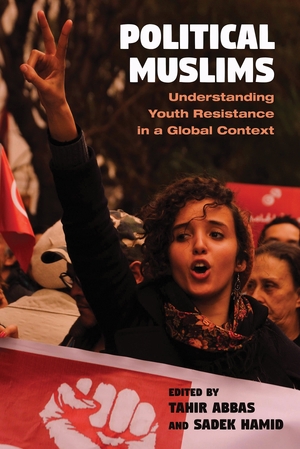"This remarkable and timely collection of essays explores how modern youth around the world are forging new identities and communities in the midst of rapidly changing economic, communication, and media environments."—Ian Condry, author of Hip-Hop Japan: Rap and the Paths of Cultural Globalization
"In beautifully crafted ethnographic detail, this collection of chapters explores how young women and young men in diverse societies negotiate a place for themselves, suspended between the present and the future, at once of the global and of the local."—Niko Besnier, author of On the Edge of the Global: Modern Anxieties in a Pacific Island Nation
"From Chinese idol shows to Tongan-American youth gangs, this volume brings together a startling diversity of current research on global youth cultures and gender politics. The studies collected here are both good research and good reading."—Geoffrey M. White, author of Identity Through History: Living Stories in a Solomon Islands Society
Description
In recent years, there has been a proliferation of scholarly interest in youth cultures, with much of the focus on questions of how young people shape and are shaped by the experiences of globalization in the modern age. As adolescents everywhere struggle to redefine their gendered and ethnic identities, they are keenly aware that they operate on an uneven global terrain. Transnational images of modern youth that stress independence and self-cultivation often exist in stark contrast to the actual local limitations many youth experience.
Composed of twelve chapters based upon ethnographic research in Africa, Asia, and Oceania, this volume explores the gendered cultural diversity of how young people experience modernity. The first part features chapters on mobile phones as agents transforming gender norms for young Mozambicans and on economic independence and feminine beauty among young Namibian women. In part two, contributors describe children’s use of English and Pentecostal ideology as agents of social mobility in rural Fiji and examine androgyny, social mobility, and group membership for youth on reality television shows in China and India. Part three probes gendered discourses of “citizen warrior” versus “citizen shopper” in Cyprus and describes the moral panic surrounding child sex tourism in India. The last part analyzes how New Zealanders make sense of a growing youth activist movement, how young Australian—Papua New Guineans embrace their parents’ traditional culture, and how Tongan male adolescents in the United States construct gang identities.
About the Author
Susan Dewey is assistant professor of gender and women’s studies at the University of Wyoming. She is the author of several books, including Making Miss India Miss World: Constructing Gender, Power, and the Nation in Postliberalization India.
Karen J. Brison is professor of anthropology at Union College. She is the author of Just Talk: Gossip, Meetings, and Power in a Papua New Guinea Village and Our Wealth Is Loving Each Other: Self and Society in Fiji.




